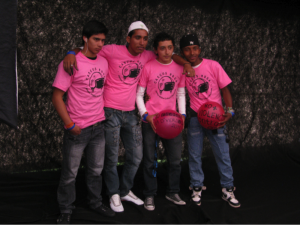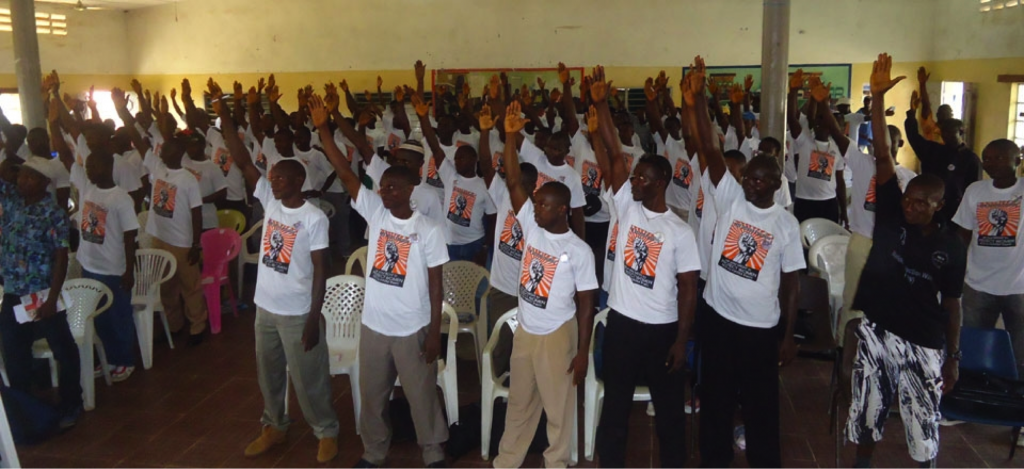My husband and I recently had the opportunity to go to a Central American country on a mission trip. I love mission trips, because, unlike tourist trips, it gives me a chance to really get to meet the people who live there. I fell in love with the people in this country. There is something about the people in Latin American countries. They are so friendly, kind, and open to missionaries from the US. We were ministering with YWAM (Youth With A Mission). They had been working with the women in this country for many years. They told me something shocking. They said that they had never met a native adult woman who had NOT been sexually abused by a family member as a child. This was true no matter what socio-economic group the woman was from, nor her age. So, rich, poor, old and young, EVERY woman they knew had been raped as a CHILD by someone in her family. They also said from their limited knowledge of other Central American countries, this was not unusual, but the norm in other countries as well.
This news horrified me. What kind of father/brother/uncle would rape his young daughter/sister/niece? How could this be the NORM in this beautiful country? Now, I admit that this is not a statistical sample. In fact, it would probably be very difficult to collect this type of statistic, who would admit this on an official survey? However, since the women self report this, I believe it is true for the most part. Why would EVERY woman make up a story so awful?
I spent the remaining nights there sleeping restlessly, tossing and turning. What would it take to change this “norm”? I know that God is sovereign, and in control, but this is such a huge problem. Lord, what will it take to end this horrendous injustice? Can the little girls put a stop to it? Will their mothers (who most likely have very little power in their homes) be able to quickly make this change? I propose that this change must come from the offenders themselves – the men of the country.
I recently read two encouraging articles about men participating in change in countries such as this. Thankfully, there are a few movements by men to fight against domestic violence.
In Ecuador, a group of young men called Cascos Rosa (Pink Helmets) is working toward changing traditional patriarchal views in their country.
Cascos Rosa was formed in 2010 by teenagers and young adults who had received awareness raising training on gender equality, violence and ways of expressing masculinity from the Ecuadorean chapter of Acción Ciudadana por la Democracia y el Desarrollo (ACDemocracia – Citizens’ Action for Democracy and Development) and the Coalition against Trafficking in Women and Girls in Latin America and the Caribbean.
The purpose of Cascos Rosa is to change the way people in Ecuador think about the role of women, and to combat gender violence and the consumption of prostitution and pornography.
Their pink helmets and T-shirts “break the stereotype that only women wear pink; that boy babies are dressed in blue and girls in pink,” said Valencia, the network’s spokesman.
Cascos Rosa originally had 33 members who emerged from the first workshops held in educational centers, and now has 140. So far 900 young people have received training. At first, only young men were included, but this year women joined the ranks.
The network members spread their knowledge by giving talks in schools and conducting awareness raising activities at gatherings that draw young people, like music festivals. The work of the Cascos Rosa has spread from Quito to four other municipalities in the northern province of Pichincha, where the local government supports the project.
Carolina Félix, who runs workshops for the network, said this is an ongoing effort, because deep-seated change is not achieved in a 12-hour training session. “That is not enough to modify behaviors and attitudes, let alone reality,” she said. But she added that the workshops do spark reflection, interest, questions and new practices among young people.
“We do not impose a way of thinking. We encourage the construction of a society based on equality, human rights and equity. The goal is to create spaces where men do not have power over women, where they express their emotions, and where women also understand that we have rights, freedoms and responsibilities, just as men do,” Félix said.
Their goal is to shape the character of young people, and to encourage them to spread their new knowledge in their homes and schools.
In Sierra Leone, a country known for Female Genitalia Mutilation (FGM), forced child marriage, high childbirth mortality rates, and no family planning, a group called FINE (Fambul Initiative Network for Equality) is holding “husband classes” to teach men why women’s issues are also important to THEM.
It’s a sweltering afternoon at the village school in Binkolo, in northern Sierra Leone. The “students”—a group of 50 men, ranging in age from their early 20s to their 60s—are listening attentively to the teacher.
“How many of you have ever beaten your wives?” he asks. About two-thirds of the men raise their hands.
“And how many of you would do it again?” The same hands come up.
“How many of you want to see your mother beaten?” The men sit silently; not a single hand is raised.
The teacher speaks with quiet intensity. “When you beat your wife,” he says, “you are beating someone else’s mother—your child’s mother.”
When the teacher pointed out that wife-beaters were also mother-beaters, some of the men broke down and cried. Many vowed never to raise a hand against a woman.
This is no ordinary school, and its lessons will not soon be forgotten. The men of Binkolo village are attending “husband school,” a project of the Fambul Initiative Network for Equality (FINE). They are learning new ways to relate to their wives and daughters, which could have far-reaching benefits for their families—and for the people of Sierra Leone.
Many organizations are working to turn this around by reaching and empowering women. But FINE grew from an important insight: too often, it is men who serve as the gatekeepers to women’s rights and health. From tribal chiefs who control community resources to husbands who beat their wives, men can be a formidable barrier to women’s empowerment. But men can also use their strength, and their power, to help women.
Armed with this insight, FINE set out to reach and educate men. FINE has trained hundreds of volunteer educators, who in turn have reached some 10,000 tribal chiefs, husbands and religious leaders. In village schools and courtyards across Sierra Leone, their husband schools teach men about the harmful effects of rape, gender-based violence, teen pregnancy and FGM. FINE volunteers encourage men to respect their wives’ childbearing preferences, to care for them throughout pregnancy and childbirth, and to make sure they give birth in a hospital.
The results have been dramatic. The villages where FINE volunteers work have seen a 60 percent decrease in rape and gender-based violence, and maternal mortality has declined by more than 60 percent. There has been a 75 percent increase in hospital births, and contraceptive use has soared from 30 to 51 percent.
Of course, FINE’s work with men is no substitute for women-centered programs—there is still an urgent need to reach and empower women in Sierra Leone and elsewhere. But reaching men is an important complement to that work.
So, the wheels of change are beginning to turn in Central America and Africa. What about in the US and the UK? I will talk more about that next week.
Let’s pray.
Dear Lord, I pray that we will have Your heart for the women and girls all around the world. I pray that men everywhere will begin to envision a new reality for themselves and their wives and daughters, making everyone’s lives better. Amen





This is awesome. Now I guess I need to come up with a plan for here! Awesome!